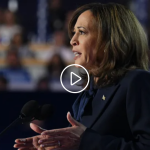The former head of the Inter-Services Intelligence (ISI), Gen Hameed, was arrested in a move that has been described as unprecedented. This development has once again brought to light the complex interplay between Pakistan's political leaders and its powerful military establishment.
The Arrest of Former ISI Chief Faiz Hameed
Gen Hameed's arrest marks a significant moment in Pakistan's history, challenging the long-standing perception that individuals in such high-ranking positions are beyond reproach. The arrest was prompted by allegations of misconduct related to a private housing society, and it coincides with a directive from the Supreme Court of Pakistan. This directive instructed the owner of Islamabad's Top City housing society to seek redressal through appropriate channels, including the Ministry of Defence.
This situation has not only drawn attention to the legal proceedings against Gen Hameed but also highlighted the broader implications for civil-military relations in Pakistan. The arrest signifies a shift towards greater accountability within the military ranks, a move that could alter how military and political leaders interact in the future.
Imran Khan's Response to Gen Hameed's Arrest
Pakistan Tehreek-e-Insaf (PTI) founder and former Prime Minister Imran Khan has publicly distanced himself and his party from the developments regarding Gen Hameed's arrest. In a meeting with his lawyer, Intezar Panjutha, Khan emphasized that this is an internal matter for the army and has no connection to the PTI.
Imran Khan's statements underscore a conscious effort to separate his political identity from any perceived alliances with military figures. This move is pivotal, considering Gen Hameed's past association with Khan during his tenure as ISI chief from 2019 to 2021—a period during which the PTI enjoyed a favorable relationship with the military.
The Context of Gen Hameed's Tenure and Removal
Gen Hameed's time as the ISI chief was marked by frequent criticism from PTI's opposition for his alleged support of Imran Khan. His removal in 2021 is perceived to have contributed to the rift between Khan and the military establishment, which was a precursor to Khan's ousting as Prime Minister in 2022 through a vote of no-confidence.
The dynamics of Gen Hameed's tenure and subsequent removal are crucial for understanding the current political landscape in Pakistan. The complex web of relationships between political leaders and military officials often shapes the country's political trajectory, and these events are no exception.
Allegations and Speculations Surrounding Gen Hameed
The arrest of Gen Hameed has been accompanied by various allegations, including his purported involvement in activities related to the private housing society. While these allegations have yet to be proven in a court of law, they have sparked widespread speculation about the motivations and implications behind this move.
PTI's lawyer, Intezar Panjutha, has clarified that Imran Khan's relationship with Gen Hameed was purely professional and ended with Hameed's removal as ISI chief. However, the arrest has raised questions about the extent of Gen Hameed's influence within the military and whether his actions were reflective of broader institutional practices.
The Role of Judicial Oversight and Accountability
The arrest of a high-ranking military official like Gen Hameed underscores the need for robust judicial oversight and accountability mechanisms in Pakistan. Imran Khan and the PTI have called for the establishment of a judicial commission to investigate the events surrounding Gen Hameed's alleged misconduct and the broader implications of his arrest.
Such a commission could serve as a critical tool for transparency and accountability, shedding light on the events that led up to the arrest and ensuring that all parties involved are held responsible for their actions. This move aligns with the PTI's broader calls for judicial oversight in other areas of governance.
The Broader Implications for Civil-Military Relations
Gen Hameed's arrest has broader implications for civil-military relations in Pakistan. Historically, the military has played a pivotal role in shaping the country's political landscape, often exerting influence over elected officials and policy decisions. However, the arrest signals a potential shift towards greater accountability and transparency within the military ranks.
This development could pave the way for a more balanced relationship between Pakistan's civilian and military institutions, fostering a political environment that prioritizes democratic norms and governance practices. Such a shift would likely be welcomed by international observers and stakeholders invested in Pakistan's stability and progress.
Imran Khan's Position in the Wake of the Arrest
Imran Khan's strategic distancing from Gen Hameed's arrest highlights his efforts to redefine his political identity in the wake of his ousting as Prime Minister. By emphasizing that the arrest is an internal matter for the army, Khan seeks to reinforce his stance as an independent political leader unencumbered by military alliances.
This positioning could enhance Khan's credibility among voters who value autonomy and transparency in political leadership. It also reflects Khan's broader strategy to rally support for the PTI by focusing on governance issues and economic challenges facing Pakistan.
The Impact on PTI's Political Trajectory
The PTI's response to Gen Hameed's arrest will likely influence its political trajectory in the coming months. By distancing itself from the former ISI chief, the PTI aims to project an image of integrity and accountability, positioning itself as a party committed to democratic principles and governance reforms.
However, the PTI's political fortunes will also depend on its ability to address the economic and social challenges facing Pakistan, including inflation, unemployment, and security concerns. These issues will be central to the PTI's platform as it seeks to regain political prominence and influence.
The Importance of Transparency and Accountability
The arrest of Gen Hameed underscores the importance of transparency and accountability in Pakistan's governance structures. For the country to achieve lasting political stability, it is essential to ensure that all institutions, including the military, are subject to oversight and scrutiny.
By advocating for judicial oversight and accountability mechanisms, Imran Khan and the PTI demonstrate their commitment to fostering a political environment that values democratic norms and governance practices. This commitment will be crucial as Pakistan navigates the challenges and opportunities of the 21st century.
Conclusion
The arrest of Lt Gen (retired) Faiz Hameed represents a significant moment in Pakistan's political history, reflecting broader shifts in civil-military relations and governance practices. Imran Khan's strategic distancing from the arrest highlights his efforts to redefine his political identity and reinforce the PTI's commitment to democratic principles.
For Pakistan to achieve lasting political stability and progress, it is essential to prioritize transparency, accountability, and governance reforms. By advocating for these values, the PTI can position itself as a party committed to addressing the challenges facing Pakistan and building a brighter future for all its citizens.







